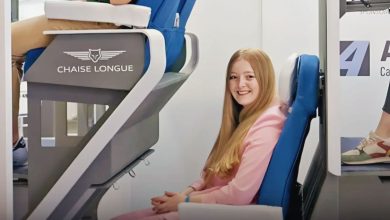An opinion piece by retired teacher Lisa Roberson, published in the Augusta Chronicle in 2017, has gone viral online. Many struggling teachers today find the article highly relatable.

“Parents are the problem”
Roberson’s letter continues to ignite debate about whether parents or teachers are responsible for the issues in the education system. In light of the pandemic, virtual classes, and students unaccustomed to traditional schooling, Roberson’s message may resonate even more strongly.
“As a retired teacher, I am sick of people who know nothing about public schools or have not been in a classroom recently deciding how to fix our education system,” she begins. “The teachers are not the problem! Parents are the problem!”
She explains that parents are not preparing their kids to learn. “They are not teaching their children manners, respect, or even a general knowledge of how to get along with others. The children come to school in shoes that cost more than the teacher’s entire outfit, but have no pencil or paper. Who provides them? The teachers often provide them out of their own pockets,” she said, referring to how teachers have to use their own money to supply and decorate their classrooms. “When you look at schools that are ‘failing,’ look at the parents and students. Do parents come to parent nights? Do they talk with the teachers regularly?”
She asks if parents ensure their children come to school with the required supples and do their homework regularly. “…Do the students listen in class, or are they the sources of class disruptions? When you look at these factors, you will see that it is not schools that are failing but the parents,” she concludes. “Teachers cannot do their jobs and the parents’ job. Until parents step up and do their job, nothing is going to get better!”
The Parent-Teacher Relationship
Ideally, educators and parents would work together seamlessly. However, the reality is often different, especially after the pandemic. Lockdowns forced parents to take a closer look at their children’s education.
This period also sparked numerous debates over policies regarding vaccinations, gender identity, race theory, school closures, masks, and other contentious political issues, lasting for years.
Despite these challenges, educators and parents have a common objective: providing children with a quality education that prepares them for the future. Teachers need to deliver this education, which may require innovative strategies to engage and inspire students. Meanwhile, parents must ensure their children are equipped with the skills necessary for effective learning before they enter the classroom.
This includes teaching them to follow classroom rules, complete their assignments, and be punctual, among other things.
However, various factors may prevent parents from being actively involved in their children’s education. Conversely, overly involved parents can create as many, if not more, challenges.
“Ghost parenting may be impacting a certain subset of students, but helicopter parenting is probably more impactful on the problems that we are seeing today,” says Scott A. Roth, PsyD, a New Jersey certified school psychologist.
“We have many children who have never been permitted to feel disappointment or frustration because parents swoop in to prevent it from happening. This can cause a child to not trust that they will ever be able to solve their own problems.”
The parent-teacher dynamic is therefore more difficult to manage than it has ever been. During the pandemic, some students fell significantly behind their peers. The widespread lack of teachers is exacerbating the fatigue and burnout experienced by those who remain in the classroom. Many claim that since the pandemic, children’s behavior has gotten worse, making pre-pandemic routines and techniques ineffective.
“So many routines were disrupted for students, teachers, and their families. Even for states that didn’t extend school closings, routines at home were disrupted, and that is very difficult for young minds to comprehend,” says Brandi David, MEd, a Florida-based K-8 educator specializing in mathematics and development editor for Hand2Mind.
“Relationships matter”
Maybe the need for schools to adapt to the times is something that both parents and educators can agree on. The modern world and its particular challenges have not yet been addressed by curriculums, schedules, and the like.
Inequity, teaching life skills, technology integration, and other areas are areas that schools need to improve, according to Patricia A. Edwards, Ph.D., a distinguished professor at Michigan State University who specializes in supporting literacy learning and development for families of color.
“In response to these criticisms, many education reform efforts are underway, focusing on curriculum modernization, personalized learning, increased use of technology, and a shift away from standardized testing,” Dr. Edwards says. “These changes aim to better align K-12 education with the changing demands of the contemporary world.”
In the meantime, parents and teachers need to work together to make the most of children’s education. “The best way to keep students accountable for their behaviors is to have a working relationship with the parents,” says David. “…Teachers should share with parents what they are doing, if it’s working, such as a calming corner, breathing techniques, and opportunities to correct their behavior.”
“Relationships matter,” Dr. Roth adds, “Students that feel safe and cared for learn better. Teachers that can connect with students relationally have far fewer behavioral problems in their classes.”
Do you agree with this former teacher’s opinions?
Please help us share this on Facebook if you do!
Sources: truthinsideofyou; newsner





